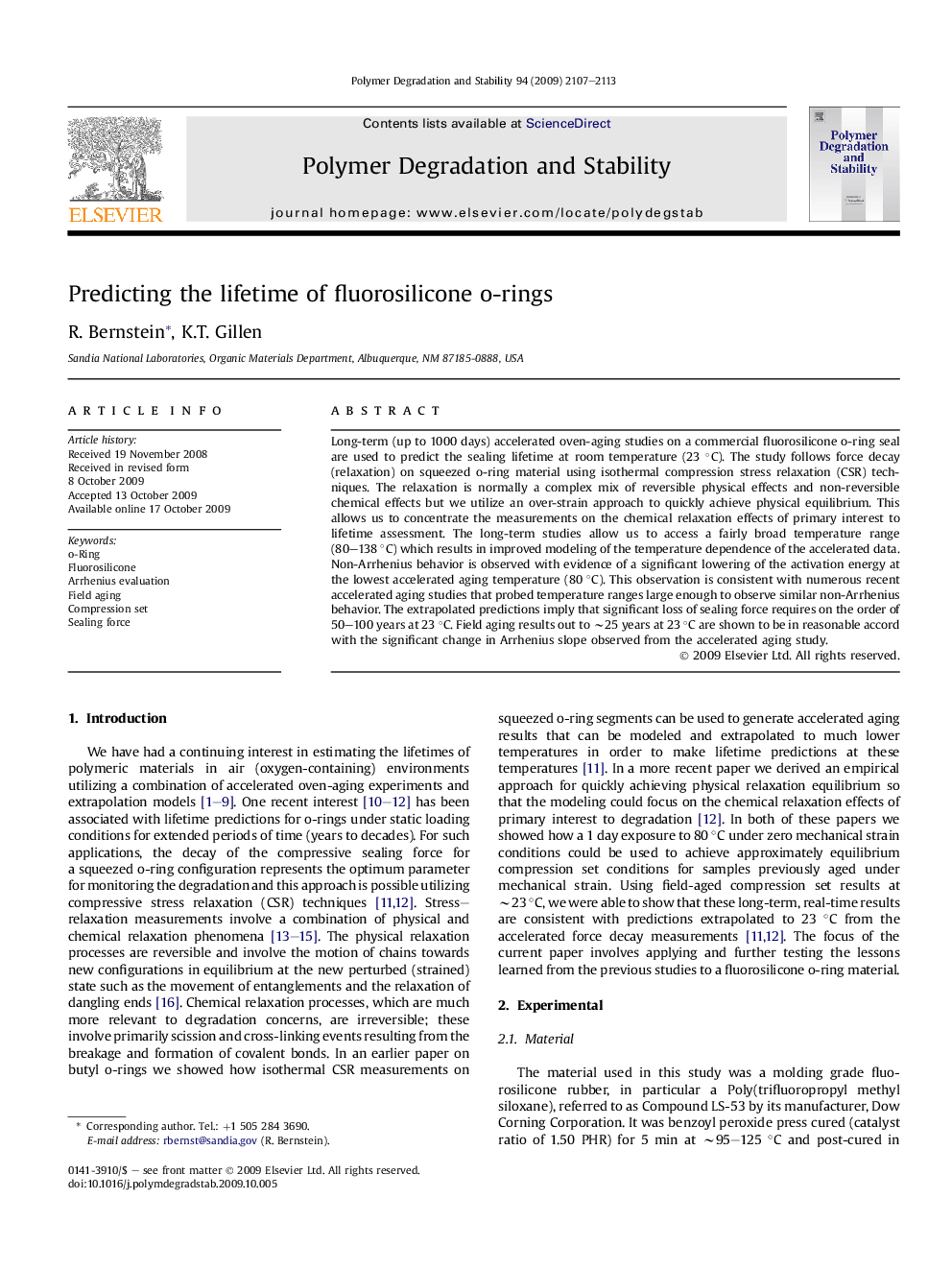| Article ID | Journal | Published Year | Pages | File Type |
|---|---|---|---|---|
| 5204308 | Polymer Degradation and Stability | 2009 | 7 Pages |
Abstract
Long-term (up to 1000 days) accelerated oven-aging studies on a commercial fluorosilicone o-ring seal are used to predict the sealing lifetime at room temperature (23 °C). The study follows force decay (relaxation) on squeezed o-ring material using isothermal compression stress relaxation (CSR) techniques. The relaxation is normally a complex mix of reversible physical effects and non-reversible chemical effects but we utilize an over-strain approach to quickly achieve physical equilibrium. This allows us to concentrate the measurements on the chemical relaxation effects of primary interest to lifetime assessment. The long-term studies allow us to access a fairly broad temperature range (80-138 °C) which results in improved modeling of the temperature dependence of the accelerated data. Non-Arrhenius behavior is observed with evidence of a significant lowering of the activation energy at the lowest accelerated aging temperature (80 °C). This observation is consistent with numerous recent accelerated aging studies that probed temperature ranges large enough to observe similar non-Arrhenius behavior. The extrapolated predictions imply that significant loss of sealing force requires on the order of 50-100 years at 23 °C. Field aging results out to â¼25 years at 23 °C are shown to be in reasonable accord with the significant change in Arrhenius slope observed from the accelerated aging study.
Related Topics
Physical Sciences and Engineering
Chemistry
Organic Chemistry
Authors
R. Bernstein, K.T. Gillen,
